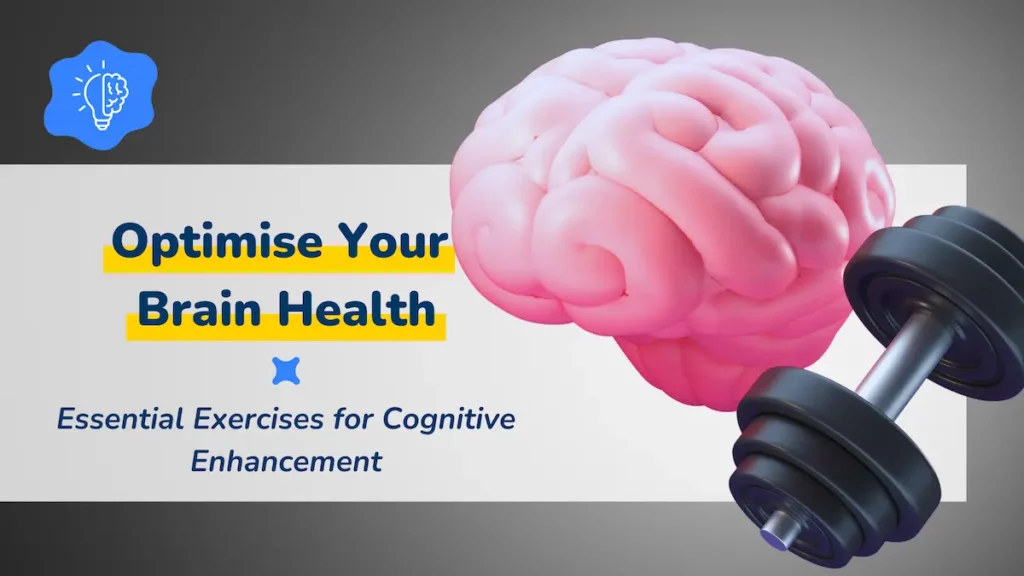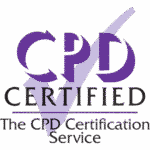Optimising brain health is pivotal in maintaining mental agility, allowing you to enhance cognitive functions, and ensuring overall well-being as we age. The brain, a complex and dynamic organ, thrives on challenge and consistent stimulation. Engaging in various mental exercises not only sharpens the mind but also fortifies it against cognitive decline and diseases like Alzheimer’s and dementia.
By fostering a better understanding of the these activities that can influence brain health, you can make informed decisions that lead to improved cognitive abilities and a higher quality of life. Let’s delve into the specific mental workouts that can help you achieve these goals.
Mental Workouts to Enhance Cognitive Functions
The debate on the effectiveness of brain games to enhance cognitive functions is still open. On one hand, there are people who say that brain games only help to improve the specific function that is being trained. On the other hand other sources are confident that extended periods of mental training do affect our brain, especially working memory. However, no one seems to believe that they could be harmful, and the debate is limited to the extent of the benefits provided, so we’ll provide a few suggestions here.
Crossword Puzzles
Crossword puzzles are more than just a leisurely activity; they are an excellent exercise for the brain. Engaging regularly in these puzzles helps enhance verbal skills and memory retention. The challenge of recalling words, coupled with the contextual clues, pushes the brain to form and strengthen neural pathways, thereby boosting long-term memory.
Sudoku
Sudoku, a game based on numbers and patterns, requires logical reasoning and pattern recognition. These puzzles don’t just pass time—they actively improve problem-solving skills and enhance concentration. Regular practice can help sharpen your mind, making you quicker and more proficient at recognising patterns in data, a valuable skill in both personal and professional settings.
Chess and Strategic Games
Playing chess or engaging in other strategic games is an intense exercise in critical thinking, strategic planning, and foresight. Each move in chess involves layers of decision-making, anticipating potential future scenarios, and understanding the consequences of each action. This not only improves your ability to think critically but also exercises cognitive domains involved in planning and foresight.
Memory Training Apps
With the advancement of technology, numerous apps are designed to train the brain in various cognitive functions. These apps often focus on tasks that improve working memory, enhance processing speed, and boost problem-solving abilities. Regular use of these apps can lead to noticeable improvements in cognitive capacities, especially in memory and speed of processing information.
Learning a New Language
Learning and actively using a new language involves multiple brain functions, including memory, cognitive flexibility, and auditory processing. This challenging activity engages different brain areas, which strengthens neural connections and promotes neuroplasticity, thereby enhancing cognitive flexibility and memory.
Musical Instruments
Playing a musical instrument is a multifaceted brain exercise that requires coordination, pattern recognition, and memory. This activity not only enhances auditory skills but also improves motor coordination and visual-spatial skills. The discipline and practice required to master an instrument are directly beneficial to enhance cognitive functions.
Reading and Creative Writing
Regular reading and engaging in creative writing are potent tools for expanding vocabulary, improving comprehension, and stimulating creativity. These activities challenge the brain to envision scenarios, understand complex narratives, and express thoughts coherently, which are essential skills for overall cognitive health.
Dance or Movement Therapy
Dance or participating in movement therapies requires memorisation, coordination, and rhythm, which are crucial for motor skills and memory. The physical aspect of dancing combined with the mental effort to remember steps and sequences offers a comprehensive workout for the brain.
Advanced Cognitive Enhancement Techniques
Meditation and Mindfulness
Meditation and mindfulness are powerful practices for improving mental health. Regular engagement in these activities can significantly enhance focus, reduce stress, and boost overall brain function. They foster a heightened state of awareness and calm, allowing for better management of stress and emotions, which is crucial for maintaining cognitive clarity.
Brain-Training Software
Advanced brain-training programmes are designed to adapt to the user’s skill level and provide a comprehensive mental workout. These digital platforms typically offer a variety of games and exercises that target specific areas such as memory, attention, and problem-solving. By regularly challenging the brain with these tasks, users can effectively stimulate cognitive growth and flexibility.
Neurobics
Neurobics involve unconventional tasks that challenge the brain to think in new ways. For example, using your non-dominant hand for daily activities like brushing your teeth or eating can stimulate neural connections in different parts of the brain. These activities encourage creativity and problem-solving by forcing the brain out of its routine patterns.
inGeniusly Cognitive Skill Training
inGeniusly provides targeted cognitive skill training designed to unlock your inner genius through the enhancement of 12 distinct skills. Each of these skills is crucial for personal and professional success:
- Productivity and Time Management: Techniques to increase efficiency and better manage one’s time.
- Focus and Decision Making: Improving the ability to concentrate and make informed decisions quickly.
- Problem Solving and Presentation Skills: Enhancing the capacity to tackle complex problems and effectively communicate ideas.
- Memory and Speed Reading: Exercises aimed at boosting memory retention and increasing the speed of reading and comprehension.
- Information Processing and Attention to Detail: Strengthening the ability to quickly process large amounts of information while maintaining accuracy.
- Critical and Lateral Thinking: Developing the ability to think critically and approach problems from innovative angles.
These exercises and programmes are designed not only to challenge the mind but also to develop and enhance the cognitive skills that are most beneficial in today’s fast-paced world.
Community and Social Engagement
Engaging with others in meaningful ways can also enhance cognitive health. Social interaction stimulates the brain through conversation, shared activities, and emotional connections, which are vital for mental well-being.
Monitoring and Measuring Cognitive Health
It is important to regularly assess cognitive health to gauge the effectiveness of your mental fitness routine. Tools and apps that measure cognitive functions can provide insights into areas that need improvement and help track progress over time.
Sustaining Cognitive Health
Nutrition and Brain Function
A nutritious diet plays a foundational role in brain health. Foods rich in antioxidants, healthy fats, vitamins, and minerals help to protect brain cells and enhance cognitive functions. Incorporate the following into your diet for optimal brain health:
- Blueberries: Known for their antioxidant properties, which can protect the brain from oxidative stress.
- Salmon and other fatty fish: Rich in omega-3 fatty acids that are essential for brain function and development.
- Walnuts: Packed with neuroprotective compounds, including omega-3 fatty acids, vitamin E, and antioxidants.
- Green leafy vegetables: Such as spinach and kale, which are high in brain-boosting nutrients like vitamin K, lutein, folate, and beta carotene.
Physical Exercise
Engaging in regular physical activity is another key to maintaining brain health. Aerobic exercises, like running, swimming, or cycling, increase the heart rate, which in turn increases the flow of oxygen. This not only improves overall brain function but also stimulates the production of hormones that encourage the growth of brain cells. Regular exercise increases the size of the hippocampus, the brain area involved in verbal memory and learning.
Adequate Sleep
Sleep is critical for brain health. Quality sleep aids in the consolidation of memory and helps in the repair and regeneration of brain cells. Adults should aim for 7-9 hours of sleep per night to allow the brain to consolidate memories and recover from the daily stimuli and activities. The processes that occur during deep sleep are essential for cognitive health and emotional regulation.
Community and Social Interaction
Maintaining social interactions can contribute significantly to cognitive health. Engaging in regular social activities can reduce the risk of memory decline and bolster emotional resilience. This can be as simple as participating in community activities, joining clubs or groups that share your interests, or regularly connecting with friends and family.
Monitoring Cognitive Health
Regular check-ups with healthcare professionals can help monitor cognitive health, especially as one ages. Cognitive assessments can help identify changes in brain function over time and allow for early intervention if necessary. Tools like cognitive tests and brain scans can provide valuable insights into one’s cognitive health status.
How to Enhance Cognitive Functions
By actively engaging in mental workouts, adopting a brain-healthy lifestyle, and utilising advanced cognitive training tools like those offered by inGeniusly, individuals can significantly enhance their cognitive capabilities. The combination of nutritious diet, regular physical exercise, adequate sleep, and social engagement forms a robust foundation for maintaining and improving brain health. Remember, a proactive approach to brain health can lead to sustained cognitive abilities and a richer, more fulfilling life.
FAQs
How can I improve my cognitive functions daily?
Incorporate a variety of mental exercises into your daily routine, such as crossword puzzles, Sudoku, or strategic games like chess. Additionally, using memory training apps and engaging in new activities like learning a new language or playing a musical instrument can significantly enhance cognitive functions.
What role does physical exercise play in brain health?
Physical exercise is crucial for brain health as it increases blood flow to the brain, which in turn delivers more oxygen and nutrients necessary for brain function. Regular aerobic exercises like running, swimming, and cycling can also stimulate the production of hormones that support the growth of brain cells.
How does a healthy diet affect cognitive function?
A healthy diet rich in antioxidants, healthy fats, vitamins, and minerals can protect brain cells and improve cognitive functions. Foods like blueberries, salmon, walnuts, and green leafy vegetables provide essential nutrients that support brain health and can help in preventing cognitive decline.
What are some advanced techniques for cognitive enhancement?
Advanced techniques for cognitive enhancement include meditation and mindfulness practices, brain-training software, and neurobic exercises. These methods can significantly improve focus, reduce stress, and enhance overall brain function by challenging the brain in new and unconventional ways.
Can social interactions improve brain health?
Yes, engaging in meaningful social interactions can stimulate the brain and promote cognitive health. Activities that involve conversation, shared tasks, and emotional connections help keep the brain active and are essential for mental well-being.
Why is sleep important for brain health?
Quality sleep is essential for brain health as it aids in memory consolidation and the repair and regeneration of brain cells. Adults should aim for 7-9 hours of sleep per night to ensure that the brain has adequate time to process daily activities and recover, which is crucial for maintaining cognitive functions.






